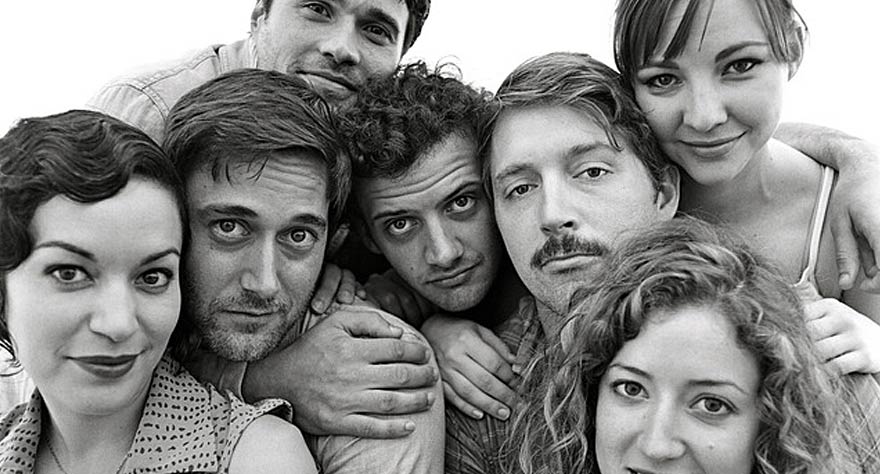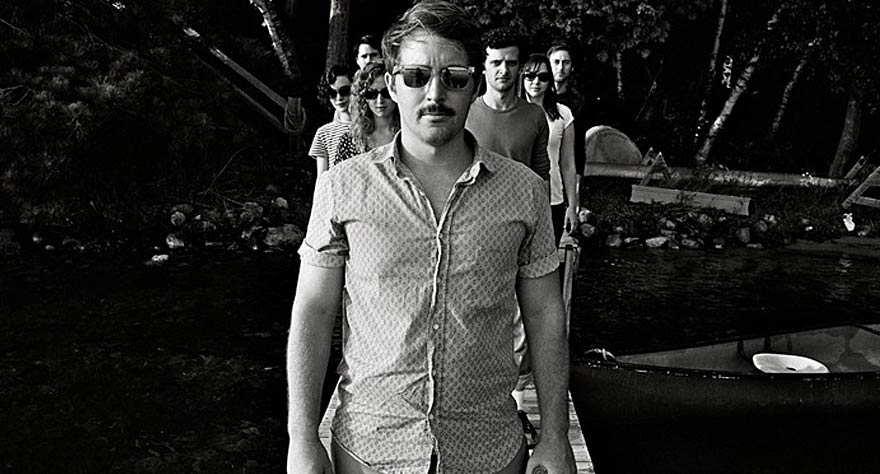
A last get-together weekend among old friends makes for a nostalgic film.

A last get-together weekend among old friends makes for a nostalgic film.
If there’s one thing director/co-writer Chris Lowell (mostly known for playing Piz in Veronica Mars) wants viewers to know, it’s that Beside Still Waters is shot on film. Shot on grainy 16mm and (partially) 8mm, Lowell embraces the textured look of the slowly dying format for his debut feature, inserting film burns and other analog “imperfections” throughout. Sure, it’s a little fetishistic at times, but Lowell’s choice is a smart one considering the film’s themes. This is a film about nostalgia, with characters reflecting back on their youth, sometimes succumbing to their desires for reliving the past. The format makes perfect sense, considering every character comes under the influence of their memories from a pre-digital era.
The screenplay, written by Lowell and Mohit Narang, sounds like another take on The Big Chill. Daniel (Ryan Eggold) invites his childhood friends over to his parents’ home for one final weekend; Daniel’s parents recently died in a car crash, and the home will get repossessed come Monday, prompting everyone to have one last party just like old times. One by one Daniel’s friends arrive, each with their own distinct personality: childish Tom (Beck Bennett), reality TV star James (Brett Dalton), high school sweethearts Abby (Erin Darke) and Martin (Will Brill), free spirit Charley (Jessy Hodges), and Daniel’s ex Olivia (Britt Lower). Olivia shows up unexpectedly, stunning everyone once she introduces them to her fiancé Henry (Reid Scott).
It doesn’t take long for the complicated relationships between this small circle of friends to get exposed. Daniel still isn’t over Olivia; Abby and Martin’s marriage is far from perfect; James and Charley have an on-again, off-again relationship. There are plenty of secrets between all seven friends, with most of them coming out once the booze starts flowing. Lowell and Narang, seemingly aware of how cost-prohibitive it is to shoot on film, waste little time establishing their characters. Interactions are brief and to the point, explaining just the right amount of information needed to push the narrative along. It’s to Lowell and Narang’s credit that the dialogue feels natural. By having conversations unfold in the context of old friends catching up, exposition doesn’t feel forced or stilted.

In fact, Beside Still Waters’ efficiency is the best thing going for it. Running at a brisk 76 minutes, there’s little time to dwell on character and story developments. That may sound like a detriment, but the quick pacing avoids the annoying task of waiting for the inevitable. The “Will they/Won’t they?” dynamic between Daniel and Olivia thankfully resolves itself immediately, and character secrets get exposed almost right after viewers learn about them. These plot elements (infidelity, homosexuality, marital troubles and jealousy, just to name a few) aren’t exactly refreshing, but Lowell understands that the drama comes out of watching characters reveal and react rather than withhold and avoid.
The best example of Beside Still Waters’ strengths happens during one inspired sequence the day after everyone parties too hard. Crosscutting between three sets of characters talking about what they did the night before, and edited to sound like one conversation, the scene covers several major narrative developments while establishing how open everyone is with each other. Lowell tries other potent methods of conveying information, but the results are somewhat mixed; his use of frequent cut-aways to quick-fire montages of still photos to emphasize themes of memory and nostalgia is a bit too on-the-nose.
But compared to other low-budget indie dramas, Beside Still Waters is distinctive, and not just because of its choice to shoot on celluloid. The weekend ends, and everyone goes their separate ways. There are no last act revelations for these characters. Most of them end up in a place similar to where they started, some for better and some for worse. It isn’t known whether or not anyone will stay in touch, or if they’ll ever see each other again. It’s an ending filled with loose ends, but it’s a satisfying ending. Good movies don’t need to wrap everything up.